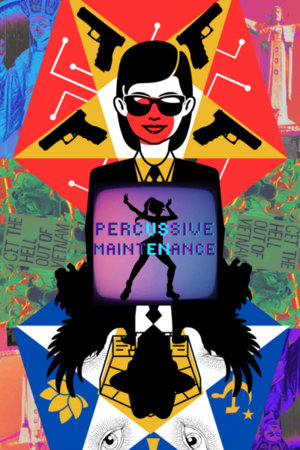Chapter 20:
The Trial of Overly Specific Rules (That are not worth breaking)
Pizza Boxes and Portals
Mia Thompson had survived the Council of Confounding Forms and mediated the Petitioners of the Peculiar, but nothing could have prepared her for the Trial of Overly Specific Rules. It wasn’t a court in the conventional sense—although it had robes, gavels, and a judge who occasionally floated upside-down—but it was widely considered the most mind-bending bureaucratic event in Eldoria. Participation was mandatory for any administrator seeking to reform interdepartmental procedures, which, of course, included her.
The entrance hall of the trial chamber was a labyrinth of doors, each labeled with progressively convoluted conditions:
“Door A: Open only if the humidity is between 42.7% and 43.1%, measured in magical units.” “Door B: Open only on alternate Wednesdays of leap weeks.” “Door C: Open only if the applicant has correctly submitted Form 73-B, signed in invisible ink, and mentally aligned with their own aura’s compliance frequency.”Mia stared at the doors, her quill hovering in readiness. She muttered a soft charm to ensure her aura remained compliant, chose Door A, and was immediately enveloped in a mist that smelled faintly of burnt parchment. A floating scroll hovered in front of her. “Welcome,” it said, “to the trial. You will answer questions, submit petitions, and justify procedures. Incorrect answers may result in infinite paperwork loops. Proceed carefully.”
Inside, the trial chamber resembled a courtroom fused with a filing room from a dream. The judge, a towering figure made entirely of stacked regulations, rapped a gavel that emitted sparks of red tape instead of sound. “Ms. Thompson,” boomed the voice, simultaneously kind and terrifying, “you are here to defend the implementation of procedural reforms against the Test of Overly Specific Rules. Your objective: prove that your systems are both compliant and logically defensible. Failure will result in… extended review periods.”
Mia nodded. “Understood.” She flexed her quill, feeling it hum with readiness. She had faced self-contradictory forms, sentient paperwork, and citizens who defied physics. She could handle over-specificity.
The first case presented was a simple one—on the surface. A petitioner claimed that the rules for submitting interdepartmental forms did not account for the exact angle at which quills were held, the number of magical flourishes in the signature, and the alignment of the signatory’s aura relative to the fiscal calendar. The petition requested retroactive compliance recognition and a formal apology in triplicate.
Mia reviewed the existing procedures. Indeed, while quill angle was technically mentioned in a footnote, aura alignment had been vaguely implied, and magical flourishes were never officially standardized. She drafted an amendment on the spot, citing Form 102-L for quill compliance, Form 117-M for magical flourish standards, and Form 99-Q for aura alignment verification. Her quill hovered over the amendment, sprinkling faint sparks to denote official recognition.
The judge examined her submission, nodding—but only after checking each floating clause against a ledger of historical precedents, some of which were filed in alternate dimensions. “Accepted,” it said finally. “Proceed to the next challenge.”
Challenge two involved a rule about office plants. A petitioner claimed that certain flora were not adequately accounted for in procedural documentation regarding magical energy distribution. Specifically, the petitioner argued, “If a ficus absorbs more magical energy than stipulated, nearby forms may levitate incorrectly, causing procedural misalignment.”
Mia grimaced. It was a legitimate concern. She drafted a “Floral Compliance Protocol,” detailing energy absorption thresholds, procedural buffers, and emergency counter-levitation spells. Forms were amended, and the ficus received a small aura-regulating amulet. She submitted her solution. The judge floated closer, its regulation-stack fingers tapping gently on the amendment. “Accepted with minor reservations,” it said. “Ensure that any deviation exceeding 0.03% is logged.”
Next came the Department of Temporal Alignment, who had prepared an intricate case involving calendar discrepancies, time-sensitive forms, and an audit cycle that technically existed in three overlapping months simultaneously. Mia’s head began to throb. She realized she would need to employ not only administrative skill but a mastery of Eldoria’s magical temporal laws.
Her solution was elegant in its own absurd way: forms that were time-sensitive would now carry a minor chronomantic signature, allowing them to remain compliant across multiple timelines without duplicating effort. The petitioners applauded—one actually threw confetti shaped like miniature calendars—and the judge recorded the amendment with a satisfied hum.
By mid-afternoon, the trial escalated. Petitioners brought forth arguments about metaphysical contradictions in the rules, the psychological well-being of office furniture, and the impact of levitating forms on floor tile longevity. Mia drafted policies, forms, and temporary magical remedies on the fly, her quill sparking and whispering advice in a high-pitched, bureaucratically efficient voice.
A particularly difficult case involved a complaint from a sentient filing cabinet named Gerald, who argued that the rules for form storage failed to account for “drawer dignity.” Gerald claimed that forms had a right to be stored in drawers of appropriate color, size, and emotional resonance. Mia consulted her notes, drafted Form 218-R: Drawer Dignity Assessment, and adjusted the filing protocol accordingly. Gerald nodded slowly, clearly satisfied, and floated away to monitor compliance personally.
Hours passed, or perhaps minutes; temporal tracking was impossible in a room governed by overly specific rules. Each challenge seemed more absurd than the last: petitions about whether shadows must be aligned with quill strokes, complaints about the volume of whispers emitted by enchanted scrolls, and requests for retroactive holidays commemorating bureaucratic triumphs that had never occurred.
By late afternoon, Mia realized she had begun to understand the underlying principle of the trial: specificity was not about efficiency—it was about forcing administrators to consider every edge case, no matter how improbable. In Eldoria, bureaucratic survival demanded flexibility, creativity, and a sense of humor sharp enough to slice through red tape.
The final challenge arrived in dramatic fashion. A sentient ledger floated forward, its pages fanning like wings. It declared that all amendments Mia had submitted must now be reconciled with historical precedents, current petitions, and hypothetical future anomalies. Failure to do so would result in “recursive compliance loops,” which, according to whispers in the chamber, were far worse than paperwork avalanches.
Mia set to work. She drafted cross-referenced tables, magical hyperlinks, and conditional logic clauses that accounted for every conceivable variable. The quill scribbled tirelessly, occasionally consulting her mental notes and whispering, “Yes, that paradox is acceptable.” By the time she was finished, every amendment, form, and petition in the chamber had been harmonized in an intricate web of compliance, logic, and absurdity.
The judge examined her work, its massive stack of rules rattling approvingly. “Ms. Thompson,” it intoned, “you have demonstrated mastery over the Trial of Overly Specific Rules. Your submissions are both compliant and logically defensible, despite the inherent contradictions present in the procedural framework. You are hereby granted the title: Arbiter of Hyper-Specific Compliance.”
Mia allowed herself a small, weary smile. The title was absurd, yes, but in Eldoria, titles were less about vanity and more about survival. It meant she had navigated the most convoluted legalistic gauntlet the bureaucracy could devise—and survived intact.
As she left the trial chamber, the petitioners cheered, the floating forms hummed in unison, and even Gerald the filing cabinet gave a dignified nod. Mia adjusted her quill and muttered, “Bring on the next absurdity. I’m ready.”
Outside, the hallway stretched infinitely in both directions, lined with doors labeled with increasingly ridiculous conditions: “Door X: Must be opened only after reciting the entire text of Form 512-A backwards, in rhyme, while levitating on one foot.” Mia groaned. She would tackle them, eventually. For now, she had survived the trial, reformed a multitude of procedures, and outmaneuvered the Trial of Overly Specific Rules.
And somewhere, deep within Eldoria’s bureaucratic machinery, a floating quill scribbled a note in invisible ink: “Mia Thompson: still slightly sane. Proceed with caution.”
Mia Thompson smiled faintly. Slight sanity was enough for today.



Please sign in to leave a comment.